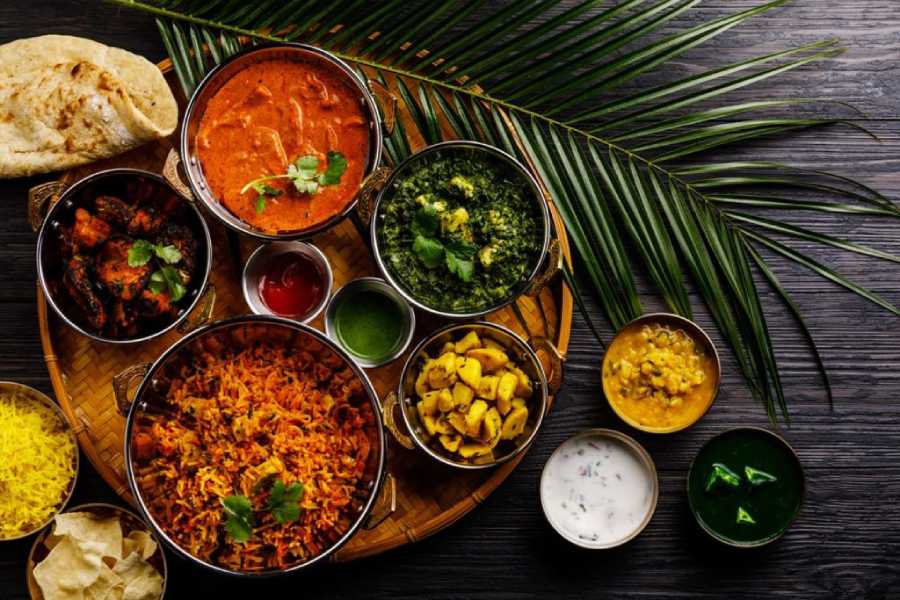
In the pursuit of wellness, exploring ancient holistic practices often unveils treasures that stand the test of time. Ayurveda, the traditional Indian system of medicine, offers a comprehensive approach to well-being, encompassing not only physical health but also mental and spiritual harmony. Among its many facets, Ayurveda emphasizes the importance of mindful eating, recognizing food as medicine. Incorporating Ayurvedic principles into your dinner routine can pave the way for improved digestion, better sleep, and overall vitality.
What is Wellhealthorganic.com:ayurveda-dinner?
At the core of Ayurveda lies the belief in the three doshas: Vata, Pitta, and Kapha. These doshas represent different combinations of the five elements—earth, water, fire, air, and ether—that exist within each individual in varying proportions. Achieving balance among these doshas is essential for optimal health.
Ayurvedic principles advocate for eating according to one’s constitution or dosha dominance. For instance, a Vata-predominant individual may benefit from warm, grounding foods, while a Pitta type might thrive on cooling, soothing meals. Understanding your dosha can guide your dietary choices to support equilibrium.
Components of an Ayurvedic Dinner
An Ayurvedic dinner typically comprises a harmonious blend of flavors, textures, and nutrients aimed at nourishing both body and soul. Here’s a breakdown of key components:
- Seasonal Vegetables: Incorporate a variety of seasonal vegetables into your meal. Opt for cooked vegetables over raw, as they are easier to digest, particularly for Vata and Pitta types. Root vegetables like sweet potatoes, carrots, and beets are grounding and nourishing.
- Whole Grains: Choose whole grains such as quinoa, brown rice, or barley as a wholesome source of complex carbohydrates. These grains provide sustained energy and fiber, aiding digestion and promoting satiety.
- Healthy Fats: Include sources of healthy fats like ghee (clarified butter), coconut oil, or olive oil in your cooking. Fats play a crucial role in lubricating tissues, supporting brain function, and enhancing the absorption of fat-soluble vitamins.
- Protein: Incorporate plant-based proteins like lentils, beans, or tofu into your meal. These protein sources are easily digestible and provide essential amino acids necessary for muscle repair and overall vitality.
- Spices and Herbs: Harness the therapeutic properties of Ayurvedic spices and herbs to add flavor and medicinal benefits to your dinner. Turmeric, ginger, cumin, coriander, and fenugreek are just a few examples renowned for their digestive, anti-inflammatory, and detoxifying properties.
- Mindful Eating: Practice mindful eating by savoring each bite, chewing thoroughly, and cultivating gratitude for the nourishment your meal provides. Eating in a calm, relaxed environment promotes optimal digestion and assimilation of nutrients.
Sample Wellhealthorganic.com:ayurveda-dinner Recipes
- Kitchari: A traditional Ayurvedic dish made with basmati rice, yellow mung dal (split mung beans), and an array of spices like cumin, turmeric, and ginger. Kitchari is gentle on the digestive system and is often recommended during Ayurvedic cleanses or when recovering from illness.
- Vegetable Curry: A flavorful blend of seasonal vegetables cooked in a spiced tomato or coconut milk-based sauce. Customize your curry with your choice of vegetables and spices to suit your dosha.
- Dal Soup: A comforting soup made with lentils, vegetables, and aromatic spices like mustard seeds, curry leaves, and asafoetida. Serve with a side of steamed brown rice or quinoa for a nourishing meal.
- Stir-Fried Tofu and Vegetables: Sauté tofu cubes with an assortment of colorful vegetables like bell peppers, broccoli, and snow peas in a ginger-garlic sauce. Finish with a sprinkle of fresh cilantro and toasted sesame seeds for added flavor and crunch.
Conclusion
Incorporating Ayurvedic principles into your dinner routine offers a holistic approach to wellness, promoting balance and vitality from within. By choosing nourishing ingredients, mindful preparation, and savoring each bite with gratitude, you can transform your dining experience into a ritual of self-care and healing. Whether you’re seeking digestive support, increased energy, or simply a deeper connection to your body, an Ayurvedic dinner can serve as a cornerstone of your journey toward optimal health and well-being.